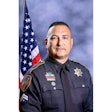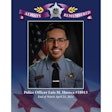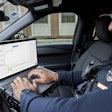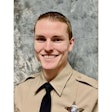Black men who try to avoid an encounter with Boston police by fleeing may have a legitimate reason to do so — and should not be deemed suspicious — according to a ruling by the Massachusetts Supreme Judicial Court.
Citing Boston police data and a 2014 report by the ACLU of Massachusetts that found blacks were disproportionately stopped by the city's police, the state’s highest court on Tuesday threw out the gun conviction of Jimmy Warren.
Warren was arrested on Dec. 18, 2011, by police who were investigating a break-in in Roxbury. Police had been given a description of the suspects as three black men — one wearing a “red hoodie,” one wearing a “black hoodie” and the other wearing “dark clothing.” An officer later spotted Warren and another man (both wearing dark clothing) walking near a park. When the officer approached the men, they ran. Warren was later arrested and searched. No contraband was found on him, but police recovered an unlicensed .22 caliber firearm in a nearby yard. Warren was charged with unlawful possession of a firearm and later convicted.
In its ruling, the court made two major findings: The justices said police didn’t have the right to stop Warren in the first place, and the fact that he ran away shouldn’t be used against him.
On the first point, the court said the description of the break-in suspects’ clothing was “vague,” making it impossible for police to “reasonably and rationally” target Warren or any other black man wearing dark clothing as a suspect. The court said the “ubiquitous” clothing description and the officer’s "hunch" wasn’t enough to justify the stop, WBUR reports.
On the second point, the court noted that state law gives individuals the right to not speak to police and even walk away if they aren’t charged with anything. The court said when an individual does flee, the action doesn't necessarily mean the person is guilty. And when it comes to black men, the BPD and ACLU reports “documenting a pattern of racial profiling of black males in the city of Boston” must be taken into consideration, the court said.












